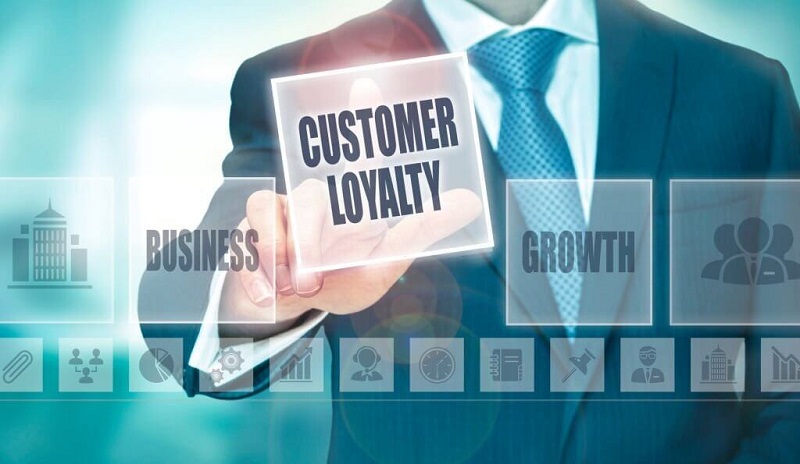Table of Contents
Amazon aggregators have accumulated nearly $15 billion in capital raised. The industry has been thriving more than ever since 2020. They can help your business in many ways, including business growth.
If they sound strange to you, or if you already know who they are and plan to make a deal with them but still have unanswered questions, you have come to the right place!
This article will give you the basics of Amazon aggregators and valuable information that helps you settle your questions.
What are Amazon aggregators?
Amazon aggregators are businesses that acquire various Amazon brands with the only intent of bringing them all under one roof. They are also known as acquirers or consolidators.
A team of Amazon aggregators is built up of Amazon veterans, e-commerce experts, and the most intelligent people in the field. They operate as investment companies with lots of funds and expertise to help them buy small Amazon businesses.

Amazon aggregators are made up from the brightest minds on the market
The purpose of Amazon aggregators is to grow the brands they buy so that their investors may profit. They are usually looking for partnerships with small businesses both on and off Amazon which they can acquire and scale to gain revenue.
Amazon allows its small partners to grow with the help of these aggregators. Otherwise, it would be impossible on their own.
At the same time, Amazon offers customers a long list and availability of products at the best prices thanks to the decrease in competition within the market.
What kinds of business models are Amazon aggregators looking for?
Amazon aggregators mainly target the three most common types of Fulfilled by Amazon (FBA) business models: Private Label, Wholesale, and Proprietary Products.
There are a few reasons why aggregators are interested in FBA business models.
- FBA businesses offer simpler logistics and a higher probability to be qualified for Prime Status. Moreover, aggregators don’t have to deal with these things.
- Aggregators want to qualify for Prime status, which is much easier to do if they acquire an FBA business.
- 86% of the top Amazon sellers use the FBA business model, according to Marketplace Pulse.
| Note: Amazon aggregators prefer private label brands to wholesale brands because they are constantly looking for firms with a good sales history. |
What are Amazon aggregators interested in?
In fact, consolidating Amazon businesses is becoming more and more popular. Moreover, it is more critical than ever for aggregators to focus on obtaining high-quality brands that they can turn into profitable D2C businesses on many platforms besides Amazon.
Although aggregators mostly choose Amazon third-party sellers to acquire, their ultimate goal is to make Amazon a starting point to expand these businesses into other channels. Here are what they are interested in:
1. Registered Brands
Registered brands are those that sell or manufacture their own branded, private-label products. These are what Amazon aggregators primarily find!
2. Profits and Margins
There is no set minimum for a good profit margin. But for most aggregators, businesses need to have at least $200,000 annual net profit and usually around 10-15% net margins if they plan to sell themselves to aggregators.

Amazon aggregators find targeting brands based on margins and profits
According to Amazon’s report and studies from different companies, the average FBA seller generates between $1,000 and $25,000 per month in sales. An Amazon FBA seller can earn anywhere from $100 to $5,000 per month with an average profit margin of 10% to 20%.
3. Percentage of Sales Placed Through Amazon
Amazon sellers can list their products across multiple platforms, including eBay, Etsy, Walmart, and Shopify. However, Amazon aggregators only focus on the percentage of orders placed through Amazon.
Each acquirer has different options for this matter. For instance, some require a minimum of 75% of sales placed through Amazon while others ask for at least 30%.
4. Number of SKUs
SKU (pronounced “skew”) or “stock keeping unit” is a number (typically eight alphanumeric digits) that retailers use to differentiate products and track inventory levels.
Fewer SKUs, more revenue. That means reducing and introducing a smaller-sized version of the package design to maximize revenue and profitability. For example, aggregators would rather see $1 million in revenue with 1-2 SKUs than with 50 SKUs.
Therefore, Amazon aggregators will opt for businesses that can generate the most revenue from the least SKUs.
5. Not a “Fad”
Amazon aggregators don’t want to deal with a business that produces “a fad.” The life cycle of a product or service considered “a fad” is very short. It often emerges suddenly, becomes popular and generates a lot of revenue, and then freefalls.
Whereas, Amazon acquirers are usually after businesses with products that will be in demand for many years to come.
6. Niche
Most aggregators are targeting a specific market and searching for niche products within that sector. And again, it depends! Not sure which niche products are aggregators’ favorites as each acquirer has his own niche interest.
7. Customer Loyalty
Having a loyal customer base proves that your business is doing well. Hence, that makes your business more attractive in the eyes of aggregators.

A loyal customer base can be a plus for your business
8. Compliance with Terms & Conditions
Aggregators are only interested in sellers who do not violate Amazon’s terms and conditions. Otherwise, Amazon will deactivate the accounts of those going against its rules. So, there is no good for aggregators in acquiring those rulebreakers.
9. Location
Most aggregators would love to buy brands that have succeeded in multiple marketplaces or even brands that are based abroad. If you are a foreign-based seller or have a good-sized or profitable business on a global scale, you can be easily targeted by big aggregators.
Why should you sell your Amazon business?
You might want to sell your business for a variety of reasons. Whatever they are, selling your Amazon business may set you free from daily responsibilities or the stress of operating an Amazon business.
1. Technical and operational matters
Lack of assistance and expertise to grow your business
Once you start your own business, you have to handle everything. It can be difficult sometimes to find help from other people who have enough expertise to support you. Especially, when you want to level up your Amazon business.
Therefore, this hassle might make you realize the need for Amazon aggregators who can provide you with specialized expertise and in return, you will sit down and make a deal with them.
These aggregators will not only help you gain SEO and Amazon knowledge but also bring out the benefits of the time and effort they invest into your business.
In fact, business growth requires extra capital and various resources. Thus, if you don’t have them all, selling your Amazon business can be a great idea.
You can decide to sell a part or all of your business to seek huge funding quickly and other resources such as suppliers, technology, and specialized Amazon expertise.
Especially, when online shopping is thriving as shoppers’ demand for this type of shopping is at an all-time high. Aggregator companies have the resources to provide growth opportunities to your business that could never have the capacity on your own.

Aggregators can offer tools and resources for online shopping strategies
They can apply their logistics experience and knowledge to save on shipping costs, develop an advertising strategy for the online platform and inspect SEO possibilities to display your products in front of more shoppers.
2. Family and personal issues
There are many personal reasons that may force you to give up on your business.
Perhaps, your family is financially struggling and you need to move your resources to support your family. Alternatively, you either need a budget for other personal goals or to help your beloved one do so.
(Family or personal problems are one of the most common reasons why selling a business)
Maybe, you are ready for a new challenge and your heart is no longer for the business. You want to pursue other interests and hobbies or invest in the next idea or project.
No matter what your reasons are, they are all valid if you know what you are doing and what you will do and you are happy with that.
Top Amazon aggregators for your consideration
According to Marketplace Pulse, there are 92 active Amazon aggregators. 53 aggregators have announced funding rounds, of which 32 raised at least $100 million.
Most aggregators are based in the United States; however, there are also companies operating in other countries such as Belgium, Canada, China, Finland, France, etc.
Here is the list of top Amazon aggregators you can consider when selling your business:
1. Thrasio
Thrasio is the largest acquirer of FBA brands and the fastest U.S. company to reach a $1 billion valuation. They have raised more than $3.4 billion in assets with more than 2/7ths of capital raised to 2021.
2. Berlin Brands Group
Berlin Brands Group has been established for 16 years and has built and scaled 14 of its own brands worldwide. BBG has raised more than $1.3 billion in assets.
3. Perch
Perch is only interested in sizable businesses with at least $1M in annual revenue but they “can be flexible for the right opportunities.”
They acquire over 70 businesses, conclude agreements in under 30 days, and rely on seller referrals for more than 30% of their acquisitions. The aggregator firm has raised a total of $908 million in funding.
4. Branded
Branded is looking for sellers who have generated at least $1M in revenue over the past 12 months, with a strong preference for FBA businesses. They have raised $150 million and successfully acquired more than 25 brands.
5. SellerX
SellerX was founded in 2020 in Berlin, Germany. Although they are one of the newest Aggregator companies on the market, they have already seized one of the top spots among their competitors. They have raised $767 million for their acquisitions.
Final Thoughts
Amazon aggregators have become a necessary part of the Amazon ecosystem. They not only help small traders but also Amazon itself to drive revenue and scale businesses.
Selling your Amazon business can open several opportunities for your brand’s future. So, we suggest that you should take this option seriously.
In our opinion, the more aggregators you discuss, the better deal you will have. Take your time to find the right one before making your decision!


